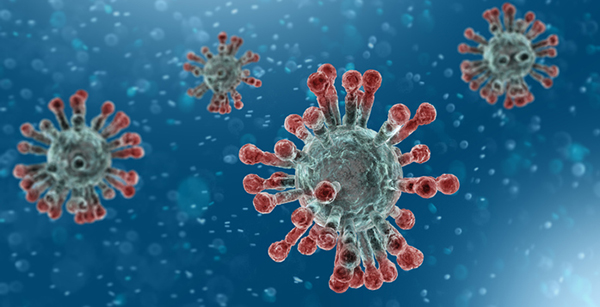COVID-19 Biobank at Brown and Lifespan fuels critical research amid pandemic
Brown University
In an effort to better understand how to diagnose and treat patients with COVID-19, physician-scholars at the Brown-based Advance Clinical and Translational Research (Advance-CTR) have partnered with Rhode Island’s Lifespan health system to create a bank of plasma and serum samples from patients who have been tested for novel coronavirus.
Project
leaders say the COVID-19
Biobank, launched in May 2020 and housed at the Lifespan Clinical
Research Center at Rhode Island Hospital, is helping more than a dozen teams of
Brown researchers confront questions that every medical professional working
amid the pandemic wants answered — including how best to diagnose positive
cases of COVID-19, how to predict the immune responses of individuals with the
virus, and how to prevent hospitalized patients from suffering long-term damage
to their health.
Founded with a grant from a COVID-19 Research Seed Fund launched by the University to fast-track innovative research addressing the direct effects of the pandemic, the biobank exemplifies Brown’s growing focus on translational science — ensuring that breakthroughs in basic research are advanced to the point where they can make a meaningful medical difference for patients, and that urgent scientific questions identified in the clinic or among patient populations become research priorities in the lab.
“In
order for our scientists to make any headway in treating this virus, they need
direct access to blood samples from primary patients who were tested for
COVID-19,” said Bharat Ramratnam, the co-principal investigator of the project,
vice chair of research for the Department of Medicine at Brown’s Warren Alpert
Medical School and chief science officer at Lifespan.
Ramratnam
said it is often difficult for virus researchers to obtain human biological
samples, as many don’t have direct access to patients or to clinical hospital
staff. The early stages of the pandemic brought additional challenges for
researchers at Brown, including limited access to personal protective equipment
and restrictions on hospital access for non-clinical staff, making it difficult
for those researchers to reach patients safely.
But
thanks to the extensive levels of partnership between the Warren Alpert Medical
School and Lifespan, researchers and working medical professionals have found
what they say is an efficient, safe and ethical way to collect blood samples
from patients with potential symptoms of COVID-19 who seek care in emergency
departments at Rhode Island Hospital and the Miriam Hospital.
Ramratnam
said research assistants in those emergency departments and at the Lifespan
Clinical Research Center are contacted every time a patient reporting a
flu-like illness comes to the hospital. After patients have received clinical
care, research assistants have the opportunity to ask them to donate blood to
the COVID-19 Biobank, following a Lifespan- and Brown-approved consent process.
“If
they’re too ill or not interested, we leave,” he said. “If they express
interest, we tell them exactly what it entails, what samples we will take and
how we will safeguard their primary health information. The importance of
implementing a crystal-clear informed consent process was something we thought
was paramount.”
According
to biobank supervisor Rony Lopez, clinical staff have collected blood samples
from about 130 patients since the biobank was launched in May. The patients
vary in age, sex, race and income level; some tested positive for COVID-19 and
others tested negative. Technicians at the Clinical Research Center have used
the samples to process nearly 3,000 vials of plasma, serum and peripheral blood
mononuclear cells, which has already aided researchers in a wide variety of
virus-related studies.
So
far, Ramratnam said, between 15 to 20 research teams at Brown have used the
samples to begin research that aims to help doctors diagnose COVID-positive
patients more easily and effectively, predict individual patients’ capacity to
recover from the virus, and prevent COVID-positive patients from suffering
long-term organ and lung damage.
Dr. Wafik El-Deiry, a professor of medical science, pathology and laboratory medicine who leads the new Cancer Center at Brown University, used plasma samples from the biobank in a clinical research experiment launched alongside other Brown faculty, graduate student researchers, Lifespan employees and investigators at Boston biotech company Verastem Oncology.
Typically focused on cancer and lung disease research, El-Deiry and colleagues drew on their knowledge of cell biology and the immune system to identify a class of drugs that may help treat non-life-threatening symptoms of novel coronavirus.
El-Deiry noted that his ad hoc research team,
Brown Experimentalists Against COVID-19, received a University COVID-19
Research Seed Fund award to support the work.
“If we lessen the ability of the viral infection to spread by blocking the infection process and by stimulating the immune system early on, we predict patients would not get as sick,” El-Deiry said.
“While we hope a COVID-19
vaccine is found soon, we know because of illnesses such as the flu that
vaccines don’t prevent illness in everyone. With this research, we hope to have
demonstrated a way to treat those who still get infected and become ill.
Without the availability of COVID-19-positive plasma samples through the
biobank, we could not have arrived at these findings so quickly.”
Brown
and Lifespan launched the COVID-19 Biobank so quickly — Ramratnam said it took
them about a week — that their clinicians and researchers have since been
inundated with questions from other centers for translational research who are
interested in doing the same. Ramratnam hopes Advance-CTR can eventually
partner with other centers to build a national virtual biobank.
“We
did it in record time, which proves that wonderful things happen when our
medical school and our hospitals team up,” he said. “Building this biobank
required financial and intellectual support from both constituents and couldn’t
have been possible without one or the other. It’s been a true combined effort.”
